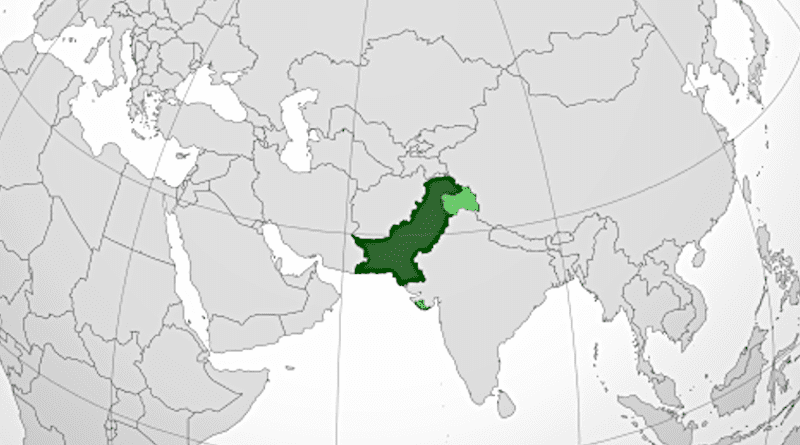Pakistan: Muslim Cleric Accused Of Planting Evidence In Blasphemy Case
By VOA
By Ayaz Gul
Police in Pakistan have arrested a Muslim cleric for allegedly planting evidence against a Christian girl accused of blasphemy. The development has raised hopes the girl may be released in a case that has revived calls for reform in the country’s controversial anti-blasphemy laws.
The overnight arrest of Khalid Jadoon, a prayer leader at a mosque in Islamabad, followed testimony by one of his aides that the cleric tampered with evidence to strengthen blasphemy charges against the Christian girl.
The cleric allegedly wanted to expel the minority Christian community from the area. A court has placed Jadoon in police custody for investigation.
A family rides past the locked house of Rimsha Masih, a Pakistani Christian girl accused of blasphemy, on the outskirts of Islamabad, August 23, 2012.
The Christian girl, Rimsha Masih, is about 14 years old and suffers from Down syndrome. She was arrested two weeks ago in Islamabad after angry neighbors, led by the now-detained prayer leader, accused her of burning pages from the Quran, the Muslim holy book.
Human-rights groups and some leading Muslim clerics in Pakistan have suspected since the beginning she has been framed.
Defense lawyers are hopeful the arrest of the cleric will lead to the girl’s release at a bail hearing Monday.
Human Rights Commission of Pakistan chairperson Zohra Yusuf says she hopes the court will take strict action against the cleric to deter misuse of the blasphemy laws.
“Because what happens in most cases is even when false accusations are leveled against people, no punitive action is taken against those who bring in the charges,” she says. “So we hope that in this case the cleric will be charged and tried. And the girl and the family need to be adequately not just compensated, but their security must be ensured.”
Fearing revenge from Muslim residents, the blasphemy charges caused hundreds of Christians to leave the neighborhood.
This latest twist in the case also strengthens the widespread perception in Pakistan that extremists have been misusing the blasphemy laws to persecute religious minorities.
Critics and minorities have long demanded reform of the laws, which carry the death penalty for anyone found guilty of insulting Islam.
Yusuf says the current case offers a good opportunity for the government to introduce reforms.
“It is a test case for the government and if they lose this opportunity then I think it will be really a setback, because this clearly demonstrated the flaws in the law itself, and it gives the government a chance to make adequate reforms in the law so that innocent people are not targeted and made to suffer,” she says.
But critics say fear of an extremist backlash has prevented Pakistani leaders from speaking against flaws in the anti-blasphemy law.
Supreme Court lawyer and a leading child rights activist Anees Gilani says that just reforming the law may not help discourage its misuse.
“I think basically it is a problem of the mindset,” says Gilani. “I think people have become so scared that there is almost no one willing to raise their voices. And this includes the judiciary, this includes the politicians also, including the government. Like even in this case you can see no one is willing to come out and openly support Rimsha. So I think this is the real problem.”
Christians make up four percent of Pakistan’s mostly Muslim population and have long complained about the anti-blasphemy law, saying it offers them no protection.
Convictions are common under the law, but most are thrown out on appeal and the death sentence has never been carried out, although outraged mobs have killed many people accused of blasphemy.

